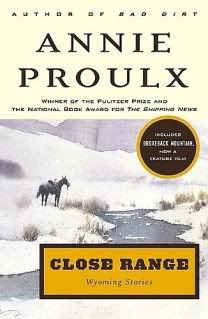
I just read Mistress Matisse's latest Control Tower column from The Stranger. I read every edition of Matisse's biweekly column, follow her blog and listen to her podcast and this is the first time I've found myself completely disagreeing with her.
The premise of her column is this: Matisse is kind of a celebrity in the Seattle kink and poly communities. She thought it would be fun to go on a few dates "without the backstory" so she dated several guys through a social networking site and found herself having vanilla sex for the first time in a long time.
Quoth she:
I went out with several pleasant, good-looking guys from a social-networking site. I told them all, "I'm pretty kinky." They all replied, "That's cool." But the sex was all pretty unkinky—and not terribly successful. I have skills and confidence in bed, but I came away from those encounters thinking, "I do not understand how to be sexual like this."
Now, one can debate endlessly about what qualifies as kinky sex. But I've figured out exactly what makes sex vanilla. The defining feature of vanilla sex is this: You communicate about it using only mental telepathy. Or so I'm forced to assume, because nonkinky people don't talk about fucking. Not before they fuck, and definitely not while they're fucking. With every kinky person I've ever dated—which is a lot—there was some conversation about "So, what are you into?" And during kinky sex, it's normal to give overt instructions: "Lick me there. Higher—yeah, like that!" Or ask questions: "Is that good? Faster or slower?"
I don't use this blog to write about my own sex life much but I will divulge that at various times I have sex that is kinky and at various times I have sex that is vanilla too. I think I've experienced what Matisse is describing. When I've gone a long time without having vanilla sex it will sometimes seem like kind of a letdown -- like it's less exciting than the kinky variety. But I've experienced the opposite too -- gone a long time without kinky sex and missed some of the tenderness or felt unsure of myself in the dominant or submissive role. That's because being vanilla and being any one of the different kinds of kinky are skill sets that require practice. You have to relearn them after too much time away.
Matisse is oversimplifying dramatically when she says that people don't communicate about their vanilla sex. She's probably right, however, that vanilla people communicate less. Vanilla sex does not always require the same amount of conversation. Vanilla is ONE of the 31 flavors, which makes "kinky" everything else in the metaphorical Baskin Robbins, including the frozen yogurt and the ice cream cakes. When you embark on kinky sex one of the first things you have to do is talk to determine what's on the menu and what isn't -- if someone tells you they're kinky you can't be sure they're into bondage, electo-stim, pegging, worshiping your feet, dressing up in a fur suit or even getting fucked. You have to ask.
When you decide to have vanilla sex, on the other hand, you can be relatively sure that certain things are on the menu. You've basically got making out, caressing each other's bodies, kissing, nibbling, sucking, manual and oral stimulation of various erogenous zones, oral sex and vaginal sex in a wide variety of positions (or anal for a lot of vanilla gay guys), possibly some light spanking -- other things too, but you get the idea. Vanilla sex doesn't always have to include all these things but, if you're not told otherwise explicitly, you could be forgiven for assuming. Knowing beforehand approximately which activities are involved doesn't eliminate the need for communication but it cuts down the amount of ground that needs to be covered. Since the key to vanilla sex isn't so much knowing what your partner wants you to do but knowing how and when you should do it, a lot of the remaining communication takes place through body language. You try something out and pay attention to your partner's reaction for guidance.
This isn't a bad thing. Being in tune with your partner's reactions is the source of a lot of the intimacy in vanilla sex. With no dominant-submissive power dynamic, the subtlety of nonverbal communication -- when it's working well -- is a fabulous way to feel like the evening's activities are taking shape organically and in a way that is controlled equally by both partners. Then, if the train goes off the tracks, or if you suddenly have a desire that you know you partner won't be able to intuit, you can give verbal instructions too. You only run into trouble when one of you, due to shyness or cultural inhibition, can't give verbal instructions when necessary. But just because you're vanilla doesn't mean you're inhibited -- an assumption a lot of kinky people are always making, myself included when I'm not careful. When Matisse says that vanilla people don't communicate she's essentially implying just that -- they're too inhibited to communicate. To support her implication she's forgetting about all the people who do communicate verbally, then grouping all the people who communicate mostly nonverbally, but successfully, together with the people who really don't communicate at all. Not fair.
Reading Matisse's column, I had to wonder if her vanilla skills have atrophied from lack of use. It has happened to me in the past. Going from kinky sex to vanilla is like listening to quiet classical music when you're used to blasting punk. It takes a little while to stop missing all that raw power you're used to feeling and re-learn how to appreciate the nuances. If she was appreciating those nuances she may have noticed that some of the communication she sought wasn't required -- or she might have realized that the guys she were sleeping with were just awful in bed (sounds like at least one of them was) and gone looking for someone with a more complete set of vanilla skills. Having vanilla sex well is, after all, it's own unique group of skills, and it requires every bit as much skill and finesse as being a good bondage top or delivering a good spanking. Sometimes you need to shop around.
